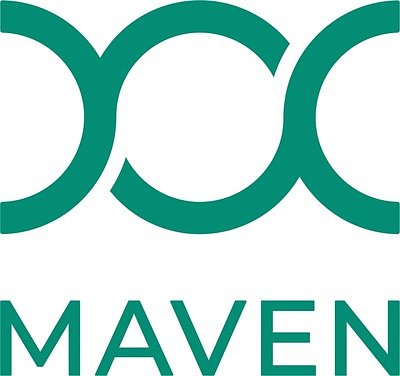
Maven Clinic’s AI-Powered Push to Tackle Rising Pregnancy Complications
Virtual care provider Maven Clinic is leveraging artificial intelligence to address the growing rates of high-risk pregnancies and maternal health complications – but experts caution about data privacy and equitable access.
Maven Clinic’s AI-Powered Push to Tackle Rising Pregnancy Complications
SAN FRANCISCO, CA – Virtual care provider Maven Clinic is rolling out new artificial intelligence (AI)-powered features designed to proactively identify and address the growing rates of high-risk pregnancies and maternal health complications. The company’s expanded platform aims to personalize care, improve outcomes, and reduce healthcare costs, but the move also raises questions about data privacy, algorithmic bias, and equitable access to these technologies.
Maven's new features integrate data from connected devices like blood pressure cuffs and glucose monitors with electronic health records to provide a more comprehensive and individualized care plan. The platform’s “Outcomes Engine” utilizes machine learning to continuously refine these plans based on individual patient data and broader trends. Maven claims these improvements can lead to fewer NICU stays, reduced rates of C-sections, and significant cost savings for employers and healthcare systems.
“We are at a critical juncture in maternal health,” says a healthcare administrator familiar with Maven’s platform. “Rates of preeclampsia, gestational diabetes, and preterm birth are all on the rise, and we need innovative solutions to address these challenges. AI has the potential to be a game-changer, but it’s crucial that we deploy it responsibly and ethically.”
Addressing a Growing Crisis in Maternal Health
The timing of Maven’s expansion aligns with a growing global crisis in maternal health. Rates of hypertensive disorders of pregnancy, like preeclampsia, have increased significantly in recent years, with some regions experiencing a 40% rise in cases between 2012 and 2021. Gestational diabetes is also becoming increasingly prevalent, while preterm birth rates remain stubbornly high.
“There’s a perfect storm of factors driving these trends,” explains an obstetrician specializing in high-risk pregnancies. “Increasing maternal age, rising rates of obesity, and chronic health conditions like diabetes and high blood pressure are all contributing to the problem. We need to shift from reactive to proactive care, and AI can help us do that.”
How Maven’s AI Works
Maven’s platform utilizes machine learning algorithms to analyze vast amounts of patient data, identify risk factors, and personalize care plans. By integrating data from wearable devices and electronic health records, the platform can provide a more holistic view of a patient’s health and detect early warning signs of potential complications. The platform also provides personalized recommendations for lifestyle modifications, dietary changes, and medication management.
“The key is to move beyond one-size-fits-all care,” explains a data scientist involved in the development of Maven’s AI platform. “Every pregnancy is unique, and we need to tailor care to the individual needs of each patient. AI allows us to do that at scale.”
Concerns About Data Privacy and Algorithmic Bias
Despite the potential benefits, the use of AI in maternal health also raises several concerns. Data privacy is a major issue, as the platform collects sensitive personal information about patients and their pregnancies. Maven states its adherence to HIPAA guidelines where applicable, and its commitment to data security, but concerns remain about potential data breaches or misuse.
“Patients need to be fully informed about how their data is being collected, used, and shared,” says a privacy advocate specializing in healthcare technology. “Transparency is essential, and patients should have the right to control their data.”
Algorithmic bias is another significant concern. If the AI algorithms are trained on biased data, they may perpetuate existing health disparities and lead to unequal care. For example, if the data set is predominantly composed of data from white patients, the algorithms may not accurately predict risks for patients of color.
“We need to ensure that the AI algorithms are fair, equitable, and unbiased,” explains a bioethicist specializing in AI and healthcare. “That requires careful data curation, rigorous testing, and ongoing monitoring.”
Ensuring Equitable Access and Responsible Implementation
Beyond data privacy and algorithmic bias, ensuring equitable access to these technologies is crucial. If AI-powered maternal care is only available to those with the financial means or access to advanced healthcare, it could exacerbate existing health disparities.
“We need to ensure that these technologies are accessible to all women, regardless of their socioeconomic status, race, or geographic location,” says a public health official specializing in maternal health equity. “That requires intentional efforts to bridge the digital divide and address systemic barriers to care.”
Maven is currently partnering with several healthcare systems and employers to pilot its new AI-powered features. The company plans to expand its reach over the next year, with the goal of making personalized, AI-powered maternal care available to millions of women.
“We are committed to using AI responsibly and ethically to improve maternal health,” says a Maven spokesperson. “We believe that AI has the potential to transform maternal care, but it’s crucial that we address the challenges and ensure that these technologies are accessible to all.”
However, the success of this endeavor will depend on ongoing efforts to address the ethical, privacy, and equity concerns surrounding AI in healthcare. A proactive, transparent, and inclusive approach will be essential to harness the full potential of AI to improve the health and well-being of mothers and babies.
